Unearth the intriguing world of collective nouns starting with 'T', and delve into a linguistic treasure trove – why stop at a 'troop' of monkeys?
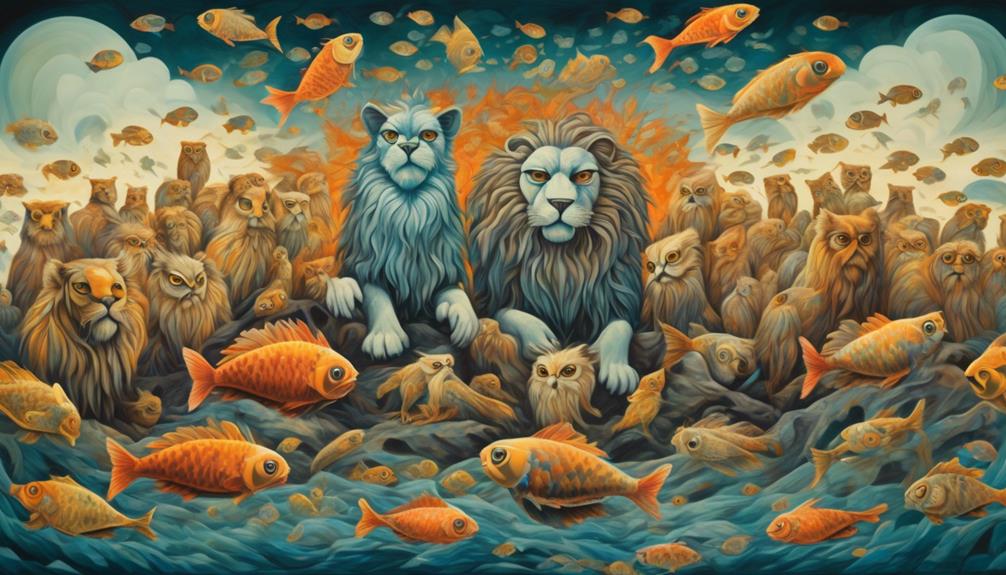
Collective Noun for Noun of Multitude
Just as you're likely to stumble upon a 'murder' of crows while taking a leisurely stroll in the park, you've stumbled upon this discussion on collective nouns for nouns of multitude.
You're familiar with the more common ones, such as a 'pack' of wolves or a 'school' of fish, but there's a whole world of these unique terms just waiting to be explored.
These terms, often steeped in historical context, provide fascinating insight into the language and culture of bygone eras.
As we journey together through this linguistic territory, you'll discover a multitude of these nouns that are as intriguing as they are varied.
Ready to embark on this adventure?
Key Takeaways
- Collective nouns refer to a group or collection of people, animals, or things considered as a single entity.
- Collective nouns can be singular when referring to the group as a whole, but can take a plural verb when focusing on the individuals within the group.
- Collective nouns originated from the English hunting tradition of the Late Middle Ages and were used to group animals with peculiar and often amusing terms.
- Lesser-known collective nouns describe groups of animals, objects, and concepts and offer a more engaging and evocative way of expressing plurality.
Understanding Collective Nouns
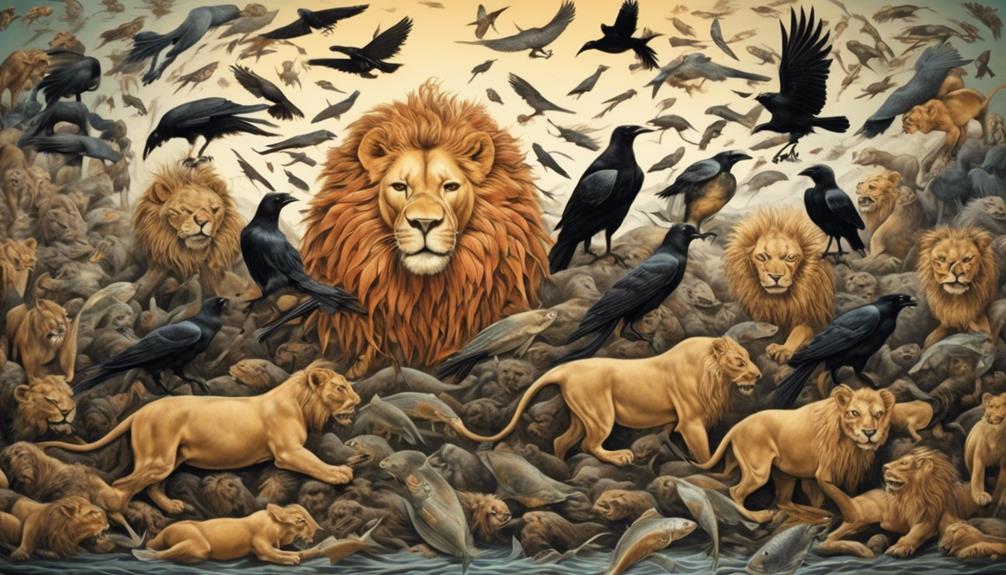
Often, you'll encounter collective nouns in both spoken and written English, and understanding their usage is crucial for effective communication. These unique words refer to a group or collection of people, animals, or things considered as a single entity. Examples include words like 'team,' 'crowd,' or 'flock.'
Understanding the singular and plural forms of collective nouns can be challenging. They're singular when referring to the group as a whole, but can take a plural verb when focusing on the individuals within the group. For instance, you'd say, 'The team is winning,' but also, 'The team are wearing their new uniforms.' It's a subtle shift in perspective, but can greatly impact the meaning of your sentence.
Furthermore, you'll find that collective nouns can differ between dialects. In American English, for example, 'staff' is singular, whereas in British English, it's often used as plural. Therefore, it's crucial to be aware of such regional variations.
Ultimately, mastering collective nouns is an essential skill that can enhance your linguistic precision and clarity.
Historical Origins of Collective Nouns
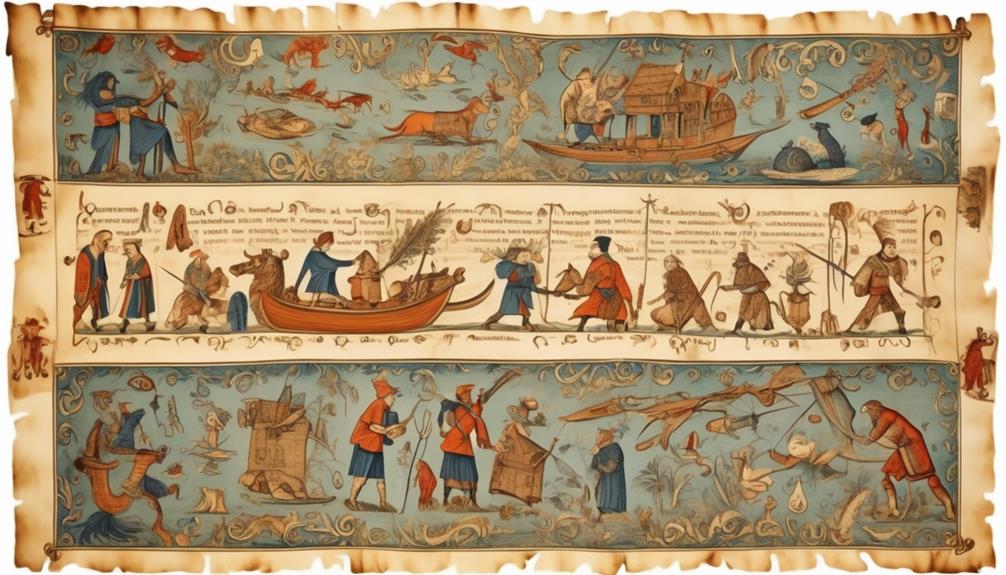
While the understanding and usage of collective nouns can vary across regions and contexts, its historical origins provide a fascinating insight into the evolution of language.
Delving into the history of language, you'll find that collective nouns, or terms of venery, originally sprouted from the English hunting tradition of the Late Middle Ages.
In this era, English gentry took delight in grouping animals with peculiar and often amusing terms. This practice wasn't just an exercise in linguistic creativity, but it was also an indicator of social class. Knowledge of the correct collective noun demonstrated a person's education, refinement, and membership in the upper echelons of society.
Books like The Book of Saint Albans, published in 1486, included a list of such nouns, marking the first recorded instance in print. This publication provided a snapshot of the language and social norms of that time.
It's fascinating how language evolves, isn't it? These collective nouns have survived centuries, transitioning from markers of social status to a delightful quirk in the English language that we enjoy today.
Examples of Common Collective Nouns
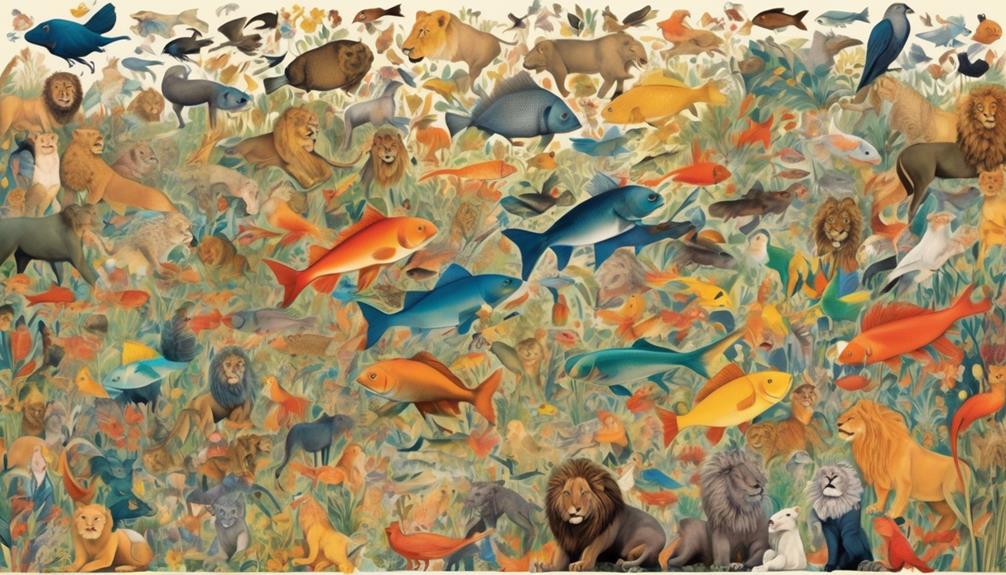
To better understand the rich tapestry of the English language, let's delve into some common examples of collective nouns, which can add a layer of vividness and precision to our conversations and writings.
Collective nouns are versatile linguistic tools that represent a group or collection of people, animals, or things. 'Flock', for instance, signifies a group of birds, while 'herd' refers to a collection of large animals like cattle or elephants.
However, the English language doesn't stop at such mundane examples. It offers a plethora of intriguing collective nouns that pique our curiosity. Have you ever heard of a 'murder of crows', an 'exaltation of larks', or a 'parliament of owls'? These might sound whimsical but they're accurate and specific in their descriptions.
Similarly, people can be grouped in many ways. You might be part of a 'choir' of singers, a 'class' of students, or an 'army' of soldiers. Each collective noun not only groups individuals but also hints at their shared characteristics or activities.
Recognizing and utilizing these collective nouns can enrich your vocabulary, and give you greater precision and flair in your communication. So, don't hesitate to embrace this multitude of nouns.
Lesser-Known Nouns of Multitude
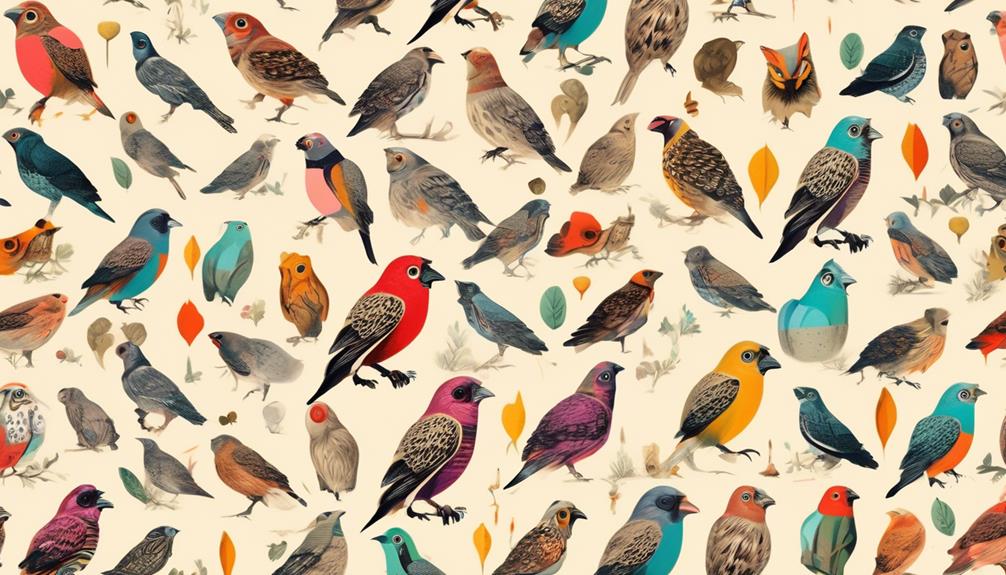
Diving deeper into the world of collective nouns, you'll encounter a trove of lesser-known nouns of multitude that serve to describe not only groups of animals and people, but also objects and concepts in the most unexpected and delightful ways. A 'clutter' of cats, a 'quiver' of cobras, and a 'gulp' of swallows may seem peculiar, but they represent the richness of English language.
Each noun is chosen with precision, encapsulating a unique and often whimsical trait of the group it represents. For instance, a 'parliament' of owls suggests wisdom and deliberation, reflecting the stereotypical portrayal of owls as wise creatures. Similarly, a 'murder' of crows paints an image of mystery and foreboding, in line with the bird's dark symbolism in various cultures.
These terms aren't confined to animate objects. Consider 'labyrinth' of tunnels, 'anthology' of poems, or 'jumble' of puzzles. These nouns succinctly capture the essence of their subjects, offering a more engaging and evocative way of expressing plurality.
Understanding these lesser-known nouns of multitude isn't just about language enrichment. It also offers you a glimpse into the cultural, historical, and symbolic significances that shape the way we communicate.
Usage Guidelines for Collective Nouns
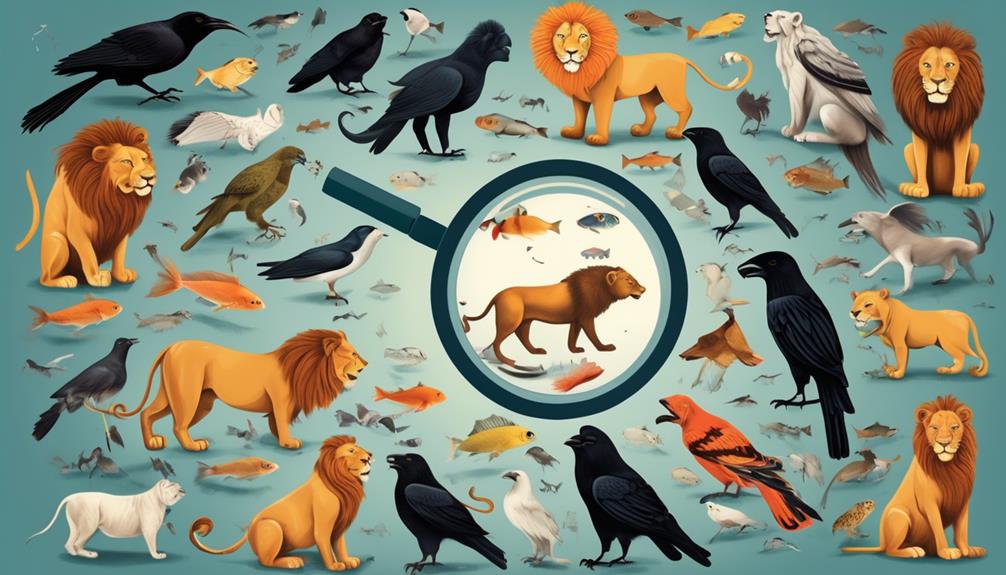
Having explored the fascinating world of lesser-known collective nouns, it's crucial now for you to understand how to use these terms correctly and effectively in your written and spoken English.
The first guideline is to ensure the collective noun matches the context. For instance, 'a pride of lions' is apt when referring to a group of lions in a wild setting.
The verb agreement with collective nouns often depends on whether you're using British or American English. In American English, you'd typically use a singular verb, e.g., 'The team is playing well.' British English, however, often treats collective nouns as plural, e.g., 'The team are playing well.'
The last guideline is about possessives. When the collective noun denotes a group acting as one unit, use a singular possessive, like 'the committee's decision.' However, if the group's members are acting individually, use a plural possessive, e.g., 'the team's locker rooms' (each team member has a locker room).
These guidelines aren't exhaustive but they're a good starting point. Remember, mastering the use of collective nouns won't only improve your English proficiency but also enrich your linguistic expression.
Frequently Asked Questions
How Can One Create Their Own Collective Noun?
To create your own collective noun, you need to think about the group's characteristics you're describing. It's about capturing the essence of the group in a single, evocative word.
Then, consider if it's used for people, animals, or things. Remember, it's important to be creative but also ensure it makes sense to others.
Lastly, it's not official until it's commonly used, so encourage others to use it too.
Are There Any Fun or Unusual Collective Nouns Used in Other Languages?
Yes, there are a variety of intriguing collective nouns in various languages.
For instance, in French, a group of cats is called a 'chatterie' which translates to 'chattery.'
In German, a group of babies is referred to as a 'windelwechsel,' meaning 'diaper change.'
It's fascinating to see how different languages use collective nouns to reflect cultural perceptions and societal norms.
How Often Are New Collective Nouns Coined and Accepted in English Language?
You're asking how frequently new collective nouns are created and accepted in English.
There's no set frequency, it's rather sporadic. It's directly influenced by societal changes and innovations.
If there's a new phenomenon, group or concept that needs a collective term, one might be coined. However, it's important to note that for it to be widely accepted, it must be used and understood by a significant number of English speakers.
Can the Same Collective Noun Be Used for Different Groups of Things or Animals?
Absolutely, you can use the same collective noun for different groups of things or animals. Consider 'flock.' It's not just for sheep; you can also have a flock of birds or even tourists.
However, it's important to note that some collective nouns are specific to certain groups for traditional or communicative reasons. So while it's possible, it's not always the norm.
What Are Some Challenges People Face When Learning Collective Nouns?
When you're learning collective nouns, you might struggle with remembering the diverse terms used for different groups. Using the correct collective noun can be tricky as they're not always logical or intuitive.
For instance, a 'murder' of crows or a 'pride' of lions aren't self-explanatory. Also, some collective nouns are used for multiple groups, adding to the confusion.
It's a challenge to keep them straight without consistent practice and usage.
Conclusion
In wrapping up, you've navigated the fascinating world of collective nouns. You've explored their historical roots, grappled with common examples, and discovered the lesser-known nouns of multitude.
Remember, usage hinges on whether you're addressing the group as a single entity or highlighting individual members.
As you continue your linguistic journey, let this knowledge enrich your understanding and use of language. After all, it's not just a flock of birds, but a charm of finches that enhances our linguistic landscape.





Sign up